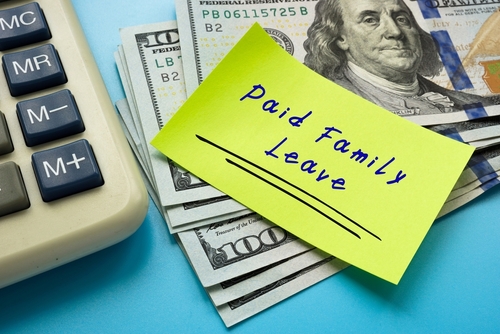Life happens. Not the Instagram #bestlife, in which everything looks in place—your work, your family, and your mental state—but real life, a life comprising a mix of joy and distress, unscheduled and on time, and in and out of control. When I was starting out, there was a work, work, work attitude and a stigma around taking time off to deal with my personal life. It was challenging to get support from an employer and sometimes coworkers to handle family demands, take care of a sick parent, or recover from the birth of a baby.
History Behind Family Leave
As modern and progressive as the United States is, we have historically trailed the rest of the world regarding paid family leave. It’s hard to believe it took until 1993 for the United States to pass the Family and Medical Leave Act (FMLA), granting women and men who qualify for the provision up to 12 weeks of unpaid leave during which their position is protected. In Florida, employers aren’t required to provide paid time off under state or federal law unless employees were granted that right in a contract or an employment policy. Access to paid leave is an overwhelming concern for women, who make up more than 50% of the U.S. workforce and most of the family caretakers.
Family Leave Decreases Divorce Rates
The length of maternity leave was once used to measure a woman’s commitment to her job and suitability as an executive leader. As our corporate culture and society evolve, the lens for career commitment has softened, with parental leave provisions allowing for a shared distribution of child care between parents in the crucial first months of a baby’s life. Paternity leave has shown that enabling fathers to dedicate time to their infant children helps develop strong bonds and lessens the burden on the mother. Sharing responsibilities during those stressful early weeks has also been found to reduce the probability of divorce; just 1 week of leave reduces the risk of divorce by nearly 30%. With approximately 50% of marriages ending in divorce, leave is a simple way to strengthen the odds.
Recruitment and Retention Strengthen
Not only has FMLA leave proven to help the family dynamic, but it’s also an incredible recruitment and retention tool for businesses of all sizes. Providing paid family leave shows employees they’re valued and their life outside the office matters. This has resulted in lower turnover and reduced costs of searching, hiring, and training new employees. Millennials and Gen Z make up close to 40% of the workforce, and as that number increases, paid family leave and family-friendly benefits will be the benchmarks for attractive work environments.
As a business owner, woman, mom, sister, and daughter, I believe there should be supplemental support set aside to take care of life that happens outside work without the stress of losing employment or income. Even though paid family leave isn’t required for all businesses, I have seen the return on investment in mental and physical health in the workplace; improved relationships with spouses and families; and, yes, joyful Instagram posts!
Rebecca L. Palmer, Esq., is a family and marital law attorney practicing in Orlando, Florida. She’s also the Managing Partner of the Rebecca L. Palmer Law Group and can be reached at rebecca@rlplawgroup.com.

